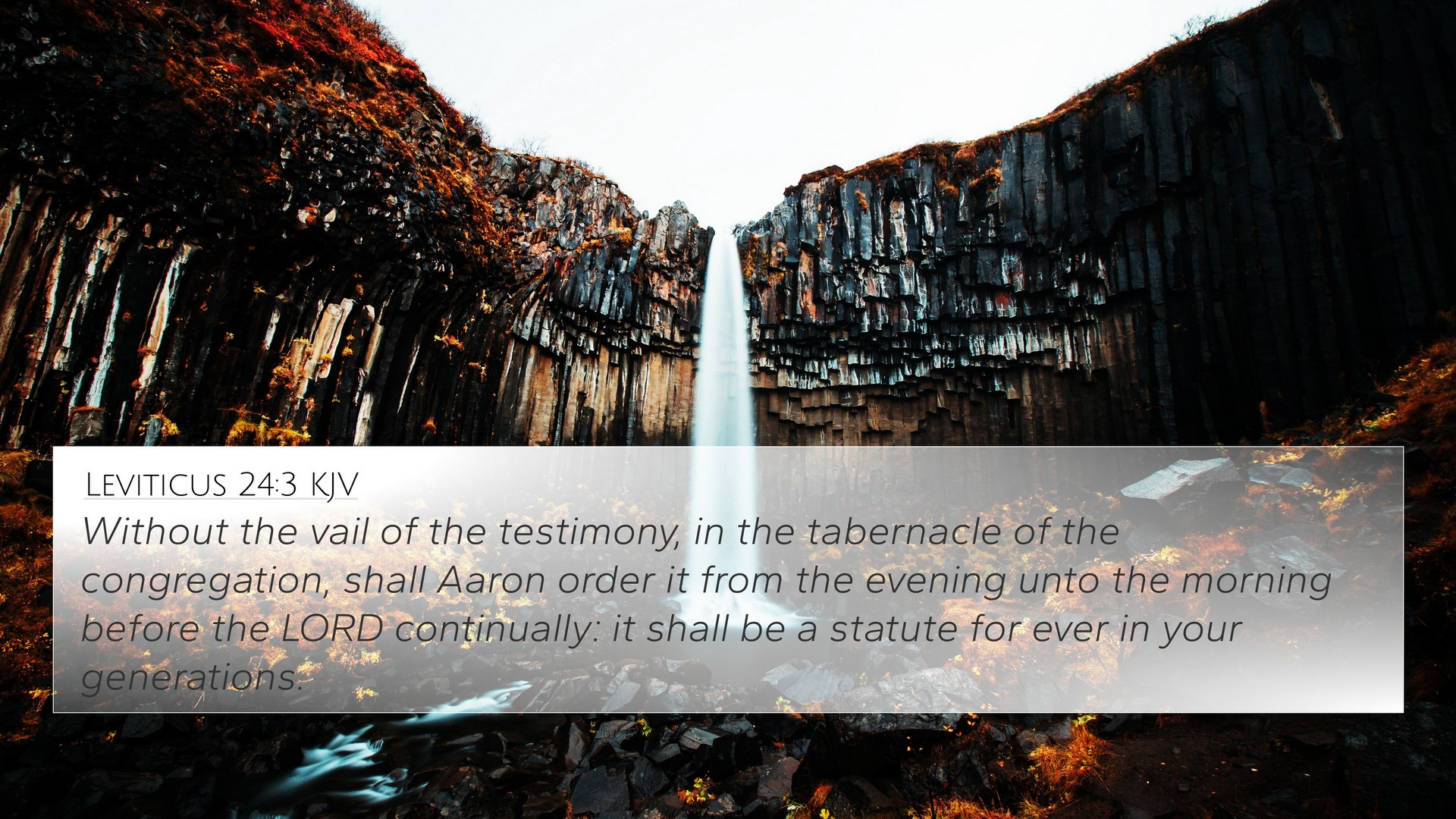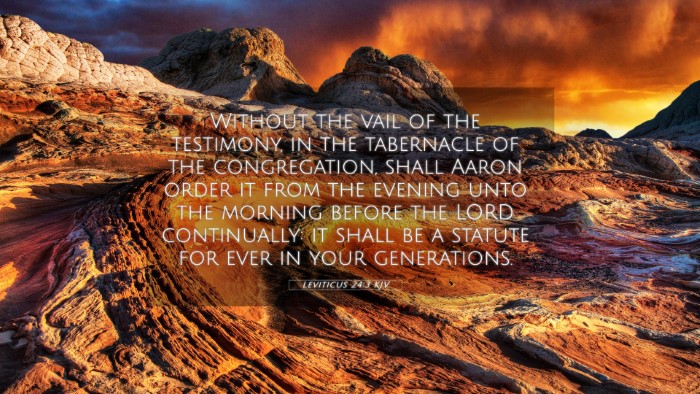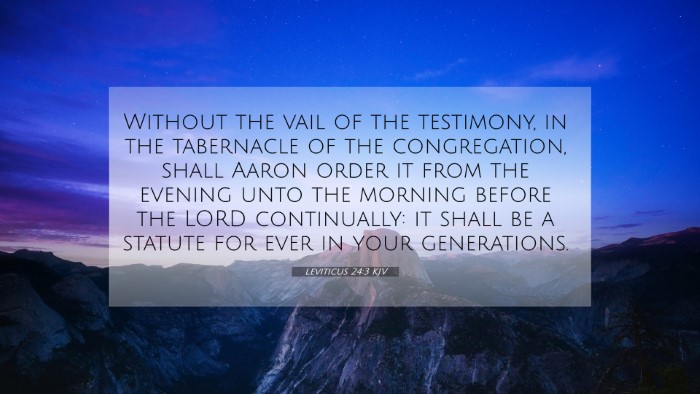Understanding Leviticus 24:3
Leviticus 24:3: "Outside the veil of the testimony, in the tabernacle of the congregation, shall Aaron order it from the evening unto the morning before the Lord continually: it shall be a statute forever in your generations."
Summary of Leviticus 24:3
This verse emphasizes the continuous nature of the tabernacle worship, particularly focusing on the duties of Aaron, the high priest. Here, it establishes a statute meant to last throughout the generations of the Israelites, highlighting the importance of maintaining a perpetual relationship with God through worship and ritual.
Commentary Insights
Matthew Henry: Henry notes that this command was directed towards a priestly role, affirming the significance of consistent worship. He emphasizes that the phrase "before the Lord continually" denotes that our service to God should be constant, symbolic of our commitment to Him.
Albert Barnes: Barnes highlights the historical context and ritualistic importance of Aaron maintaining the lamps. He explains that the instructions given are meant to remind the Israelites of their obligation to be in the presence of the Lord. This verse also serves as a reminder of holiness and the necessary approach to divine worship.
Adam Clarke: Clarke elaborates on the symbolism behind the "veil of the testimony" and the action of ordering the lamps. He interprets this as a daily reminder of God’s continual guidance and presence among His people. Clarke asserts that the term "statute forever" indicates an enduring covenant that extends into future generations, stressing the necessity of maintaining the traditions set forth.
Thematic Connections and Cross-References
Leviticus 24:3 serves as a foundation for various biblical themes, establishing connections with other verses and texts. Here are some relevant cross-references:
- Exodus 27:20-21: Instructions for the olive oil used in the lamps of the tabernacle.
- 1 Peter 2:9: Believers as a royal priesthood, emphasizing ongoing service to God.
- Matthew 5:14: Christians as the light of the world, tying back to the lampstand.
- Revelation 1:20: Symbolism of lampstands representing the churches and their testimony.
- Hebrews 9:2: Reference to the tabernacle structure and its significance in worship.
- Leviticus 6:12-13: Directions concerning the burnt offerings and the perpetual fire on the altar.
- Psalm 119:105: God’s word as a lamp unto our feet and a light unto our path.
- Luke 12:35: Being prepared and watchful, akin to the duties of the priesthood.
- Hebrews 10:25: The importance of assembling together, connected to communal worship.
- 1 Corinthians 3:16-17: The body as the temple of the Holy Spirit, echoing the significance of God's continual presence.
Final Reflections
Leviticus 24:3 underlines the theme of continuity and commitment in worship throughout generations. As seen through the commentaries, the essence of this scripture speaks to the importance of maintaining our spiritual practices and recognizing the sacredness of our relationship with God. The connections made with other scripture enhance our understanding, revealing a cohesive narrative throughout the Bible that speaks of God’s unchanging presence and our call to serve Him.
Exploring Biblical Cross-Referencing
Using biblical cross-references is a powerful tool for better understanding scripture. They allow us to:
- Identify connections between Old and New Testaments.
- Conduct a comparative study of themes such as worship, covenant, and divine presence.
- Discover parallels that lead to deeper insights into God's character and plans.
Conclusion
Leviticus 24:3, while a specific instruction, encapsulates broader themes vital to understanding God's design for worship and community. The continual nature of worship as articulated through this passage draws believers into a profound understanding of their faith, underlining the significance of rituals and the need for each generation to maintain its commitment to God.


